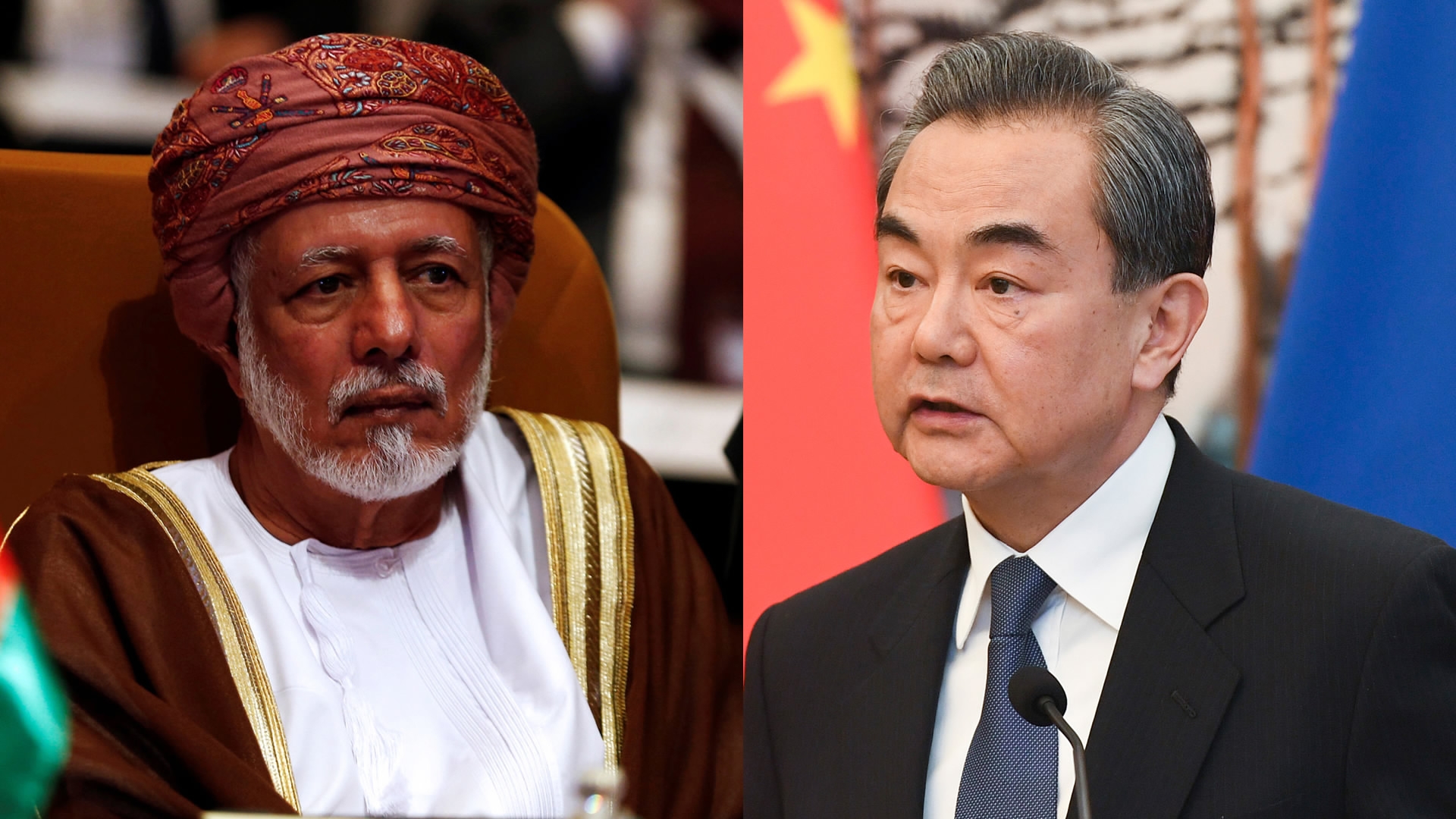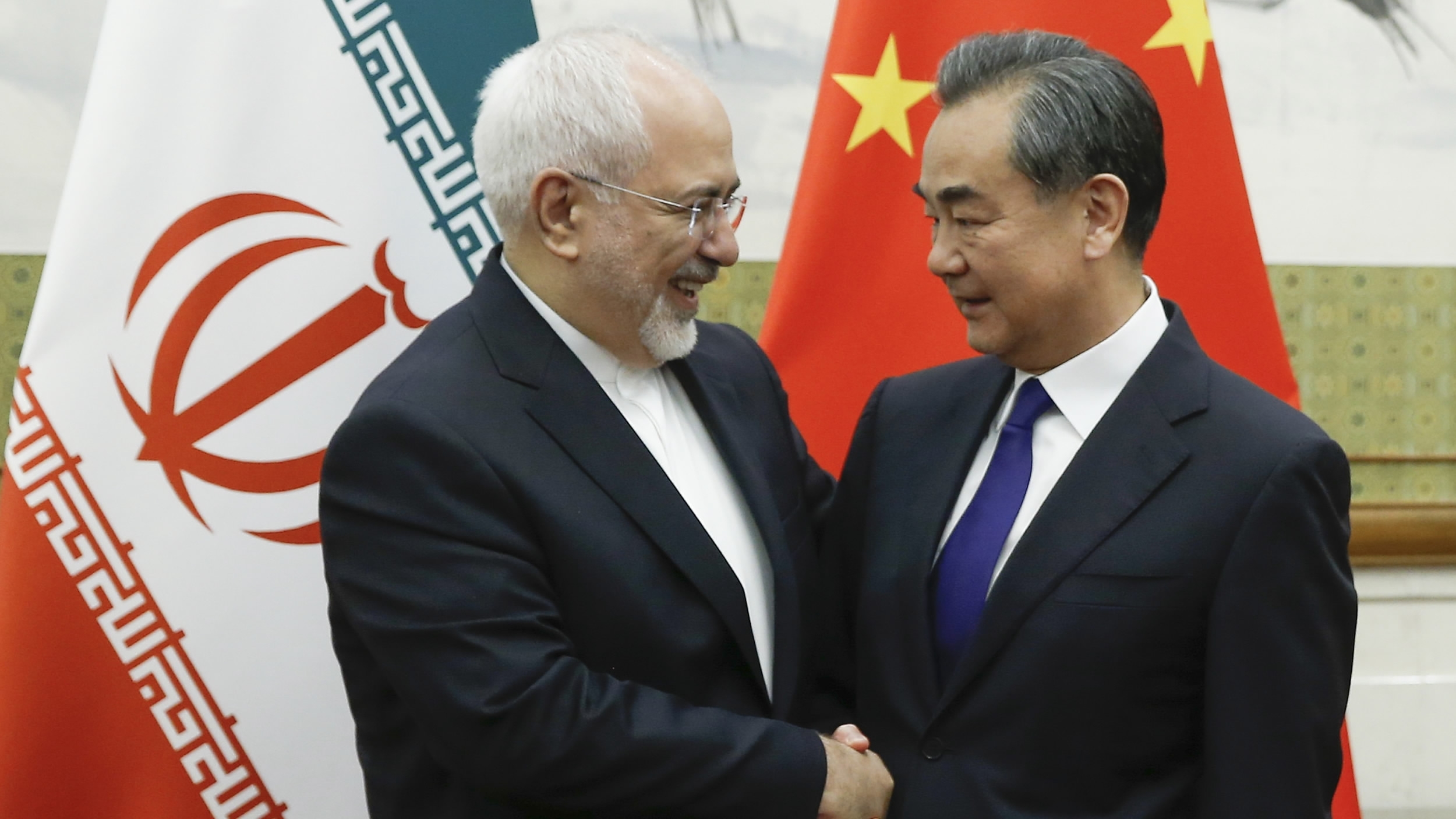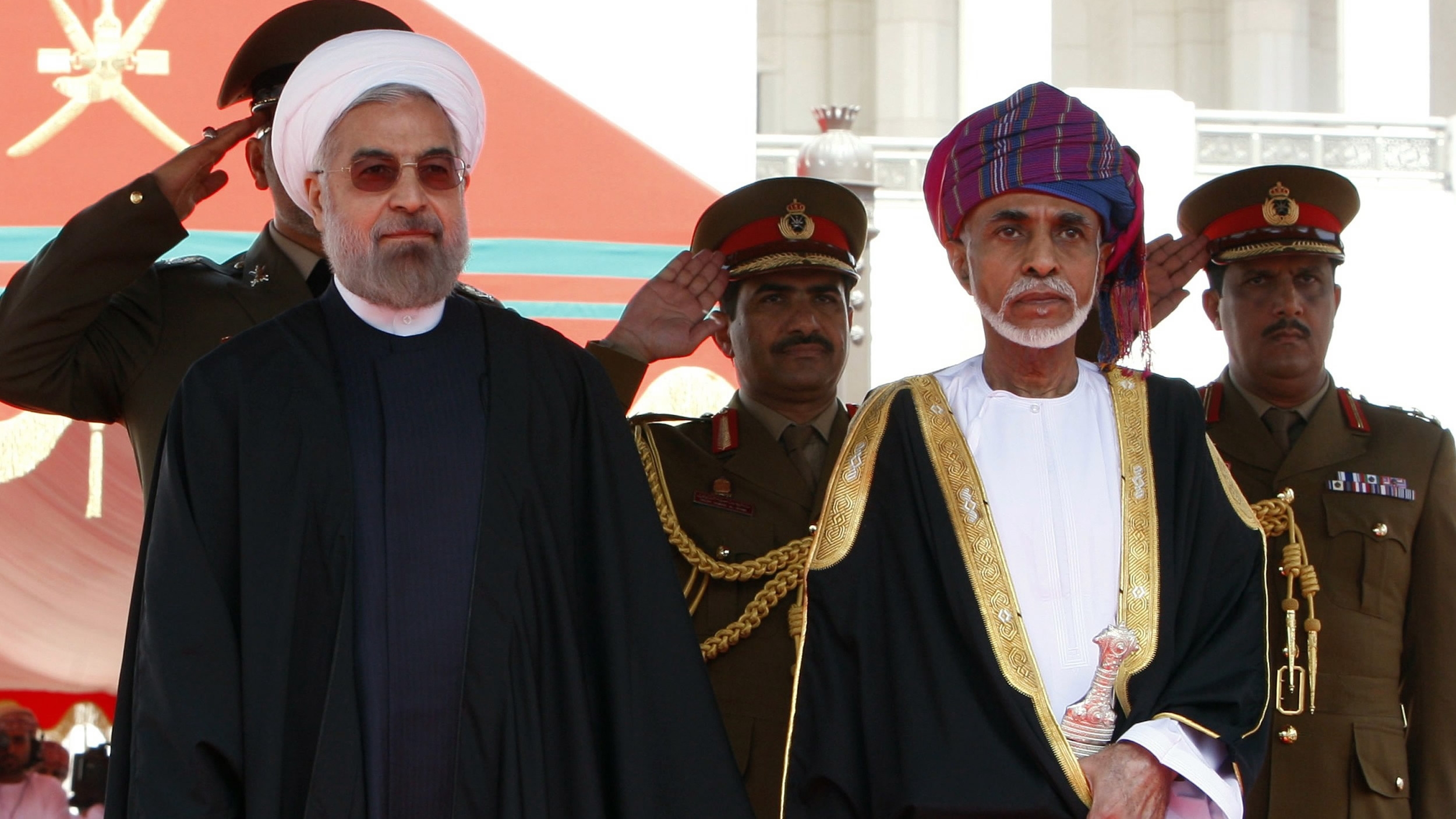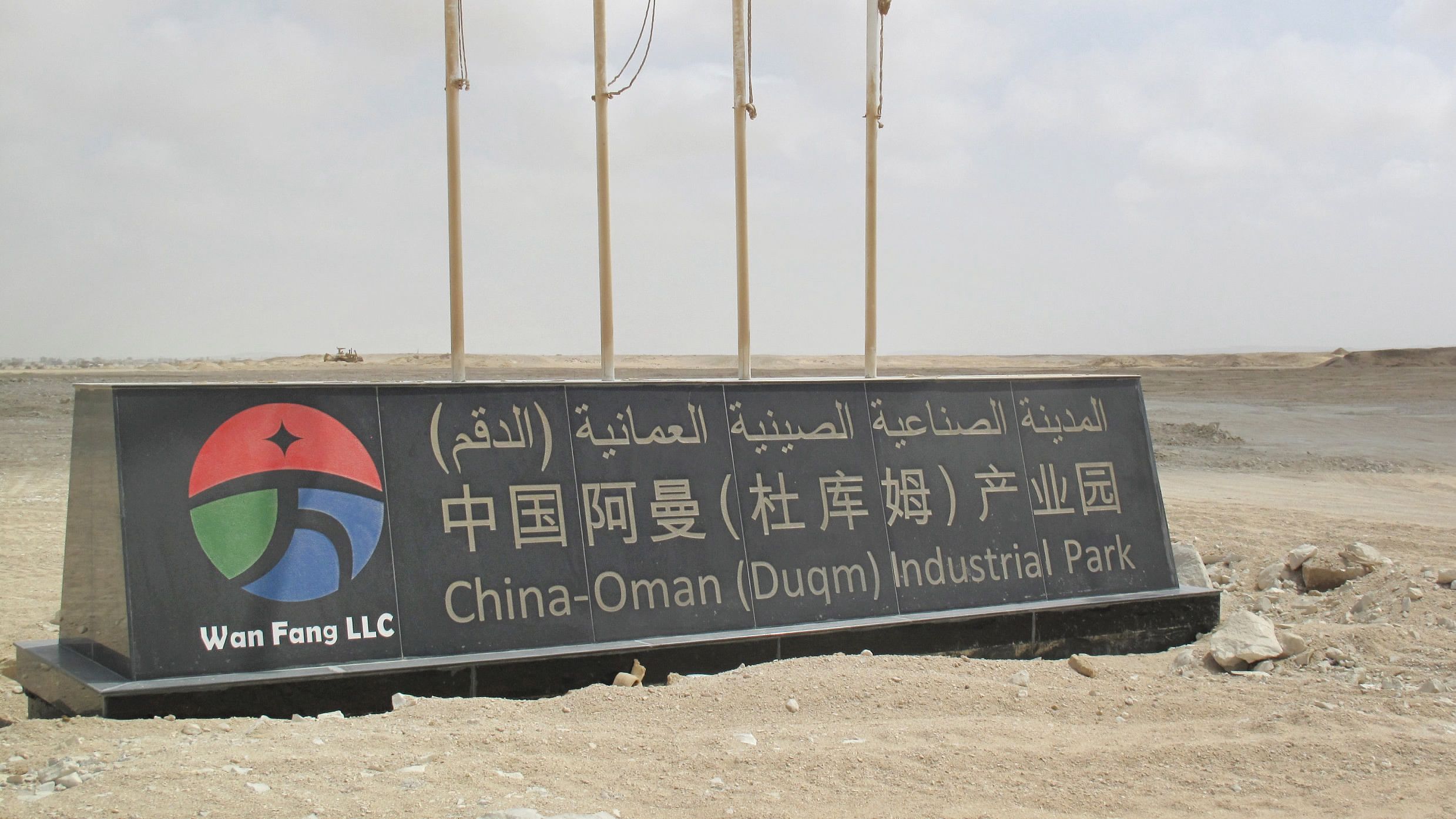
World
14:13, 15-May-2018
China, Oman converge on Iran nuclear deal as Wang Yi to host Oman's FM
By Abhishek G Bhaya

Oman’s Minister Responsible for Foreign Affairs Yousuf bin Alawi is on an official visit to China from May 12 to 16 and is scheduled to meet China's State Councilor and Foreign Minister Wang Yi.
The Omani minister’s visit gains significance as it comes amid heightened uncertainty over Iran’s nuclear deal, the grounds for which were set by Muscat which played the critical role of a behind-the-scenes mediator and is widely seen in diplomatic circles as the "unsung hero" of the landmark multilateral pact.
While Wang and Alawi are expected to discuss bilateral relations as China and Oman celebrate 40 years of diplomatic ties, the status of the Iranian deal following US President Donald Trump’s unilateral withdrawal from the pact is likely to top the agenda of their deliberations.
“During Minister Alawi's visit to China, State Councilor and Foreign Minister Wang Yi will hold talks with him, during which the two sides will exchange views on China-Oman relations and international and regional issues of common interest,” China’s Foreign Ministry Spokesperson Geng Shuang said on Friday announcing Alawi’s visit.

Chinese State Councillor and Foreign Minister Wang Yi (right) meets Iran's Foreign Minister Mohammad Javad Zarif at the Diaoyutai state guesthouse in Beijing on May 13, 2018. /VCG Photo
Chinese State Councillor and Foreign Minister Wang Yi (right) meets Iran's Foreign Minister Mohammad Javad Zarif at the Diaoyutai state guesthouse in Beijing on May 13, 2018. /VCG Photo
Oman’s Foreign Ministry earlier praised China’s contribution in maintaining international peace and security. Briefing the media on Alawi’s visit, Ali bin Mohammed Al Mahri, Head of Media Affairs at Oman’s Foreign Ministry said that the political talks with China will cover regional issues “in a bid to address the problems and alleviate the tension, which in turn will achieve peace, security and stability in the region.”
“As part of the Sultanate’s endeavors to create a diplomatic atmosphere that facilitate reaching solutions and political détente, the two sides will discuss a range of issues including the Iranian nuclear file especially China has great interests in the region and nearby regions and also plays an important role at the consultations within the UN or other regional blocs,” he elaborated.
Crucially, Iran’s Foreign Minister Javad Zarif also made Beijing the first stop of his diplomatic tour which also took him to Moscow and Brussels in a bid to save its nuclear deal with the Permanent Five members of the UN Security Council – China, Russia, US, UK and France – and Germany (P5+1). Zarif held talks with Wang on Sunday and said he hopes to forge a "clear future design" for the nuclear deal following Washington’s unilateral withdrawal, which analysts have described as “rogue behavior”.
Oman's 'discreet diplomacy' led to nuclear deal

Oman's Sultan Qaboos bin Said Al Said (right) and Iranian President Hassan Rouhani review the honour guard during a welcome ceremony in Muscat on March 12, 2014. /VCG Photo
Oman's Sultan Qaboos bin Said Al Said (right) and Iranian President Hassan Rouhani review the honour guard during a welcome ceremony in Muscat on March 12, 2014. /VCG Photo
Oman has always had good relations with both the US and Iran, which put it in a unique position for bringing both the sides to negotiating table for the Iranian nuclear pact through “discreet diplomacy”.
Oman’s Sultan Qaboos bin Said Al Said reportedly carried a letter from the then US President Barack Obama to Iran’s President Hassan Rouhani, which was hailed as a major diplomatic breakthrough.
Oman also hosted a series of “secret talks” between American and Iranian officials led by William Joseph Burns and Jake Sullivan on the US side and Ali Asghar Khaji and Majid Ravanchi on the Iranian side.
In addition, Muscat also hosted one of the official rounds Iran-P5+1 nuclear talks in November 2014, which led to an agreement in April 2015 followed by the landmark nuclear deal, also known as the Joint Comprehensive Plan of Action (JCPOA) in July 2015.
Following Trump’s unilateral pull out from the deal last week, Oman’s Foreign Ministry issued a measured statement which did not directly criticize the US but Muscat minced no words in its praise for the other signatories of the deal while warning that confrontation is not the way forward.
“The Sultanate has followed the developments of the US decision to withdraw from the nuclear deal between Iran and P5+1 Group in 2015, which was approved by a UN Security Council Resolution,” the statement said.
“The Sultanate of Oman, which has cooperation and friendly relations with both the United States of America (USA) and the Islamic Republic of Iran, will continue following up such developments and make every possible and available efforts to maintain stability and security in the region. The Sultanate believes that the United States of America and the Islamic Republic of Iran are interested in achieving peace and stability in the region and that confrontation does not service the interests of either parties,” it added
“The Sultanate appreciates the stance of the other five partners, which preserved the deal as this will contribute to maintaining regional and international stability and security,” the statement concluded.
China, Oman mark 40 years of diplomatic ties

The logo of the China-Oman Industrial Park is seen at the entrance of the site in Duqm, Oman, August 22, 2017. /VCG Photo
The logo of the China-Oman Industrial Park is seen at the entrance of the site in Duqm, Oman, August 22, 2017. /VCG Photo
Both China and Oman, along with other stakeholders, appear to have an agreement in principle on preserving Iran’s nuclear deal in a bid to maintain regional and global security.
Alawi’s visit to China is also crucial as both nations this year mark the 40th anniversary of the establishment of diplomatic ties. The Omani minister is accompanied by a delegation that includes officials from the Central Bank of Oman and State General Reserve Fund besides diplomats, according to a statement from the sultanate’s Foreign Ministry.
“China and Oman enjoy traditional friendship. This year marks the 40th anniversary of the establishment of our diplomatic ties. Recent years have witnessed the rapid growth of China-Oman relations. Our two countries always support and understand each other on issues related to each other's core interests and major concerns,” the Chinese Foreign Ministry spokesperson said.
“China is willing to work with Oman to take the 40th anniversary of the establishment of diplomatic ties as an opportunity to further cement our traditional friendship, enhance political mutual trust, elevate cooperation in various areas and move forward China-Oman friendly cooperative relations,” he added.
The Omani minister is expected to invite China to play an active role in the development projects of the Gulf sultanate, which is currently focusing on economic diversification.
“The Omani-Sino relations are historic and there are great investment and economic interests. Besides being the biggest importer of Omani crude oil, China is an important economic and trade partner for the sultanate. There are also a number of Chinese ventures in Oman,” Al Mahri added. Key among these is the development of China-Oman Industrial Park in the port city of Duqm, about 550 km south of capital Muscat.
“The Omani-Chinese Joint Committee plays an important role in enhancing economic and trade relations between the two parties to increase the number of joint ventures. There is multi-party cooperation with China in many areas, such as ports in Tanzania, Bagamoyo and Turkey as well,” said Al Mahri elucidating the span of China-Oman ties.
He also expressed Oman’s support for China’s Belt and Road Initiative. “China has good relations and many growing interests with the countries of the region. China is a partner at number of key economic and investment projects. The revival of the One Belt One Road Initiative enhances this trend and create great interests for China, the region and the world. The sultanate is a member of the new Silk Road project and a member of the Asian Bank for Investment in Infrastructure,” he said.
[Cover Photo: This combination of two photos show Oman's Minister Responsible for Foreign Affairs Yousuf bin Alawi (left) and China's State State Councilor and Foreign Minister Wang Yi. /VCG Photo]
0km

SITEMAP
Copyright © 2018 CGTN. Beijing ICP prepared NO.16065310-3
Copyright © 2018 CGTN. Beijing ICP prepared NO.16065310-3